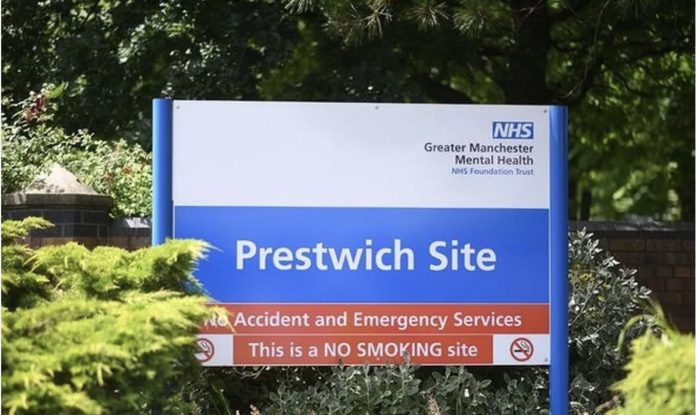A damning report on Greater Manchester’s Mental Health Trust has found an organisation with poor leadership,weak governance and a culture of suppressing bad news as well as suppressing any healthy debate
The report followed failings within the trust’s services, reported at the Edenfield Centre, and the failure within the organisation to escalate concerns and mitigate against patient harm and was commissioned by NHS England following concerns raised by patients, their families, and staff, some of which were presented through the media.
The patient failings at The Edenfield Centre in Prestwich, were reported extensively by BBC Panorama following an undercover investigation
The report found that Patients at Edenfield were vulnerable. They are in a locked setting, away from the people most important to them and are typically detained under the Mental Health Act.
This creates an inevitable disconnect for those patients and this was made much worse by COVID-19 and subsequent
responses to the pandemic. This should have meant that special efforts were made to ensure that their voices were heard and respected, but this did not occur.
Within the Trust, there were repeated missed opportunities to act on concerns raised at Edenfield.Poor leadership visibility in the service, as well as weak governance processes and a practice of suppressing ‘bad news’ in the organisation, enabled this to happen.
Inspectors found a service that had all the hallmarks of a closed culture including an absence of psychological safety,incivility between staff, poor leadership, and a lack of teamworking.
“These conditions allowed what we saw on BBC Panorama both to happen and to go unchecked. The extent to which the Board has recognised this is variable,” said the report
Inspectors were told by several Board and Executive Team members that both groups were concerned about their reputation, and that this had impacted on the transparency of what was shared both internally and externally.
“We heard that healthy debate and challenge had been discouraged, and that information provided to the Board was often poor and provided insufficient or inaccurate information to underpin Board assurance. The executive team did not work well together, and this was most notable between operational services and clinical leaders. The value, ability and effectiveness of the clinical voice was minimised or ignored. Within this vacuum,the operational voice became dominant, and the executive team and the board of directors allowed
this to happen and made no effective intervention to address this.”
Jan Ditheridge, Chief Executive at Greater Manchester Mental Health NHS Foundation Trust, said:
“We are truly sorry for the events described in the report. We worked openly and constructively with Professor Shanley and the team during their time at GMMH last year, we take the findings seriously and accept the recommendations.
“We cannot change the past, but we are committed to a much-improved future – one in which all service users and carers feel safe and supported, and our people are able to do their best work.
“Our improvement plan sets out a range of actions that are addressing the issues raised in this report. Many of these actions have been completed but we know there is more to do to ensure all of our communities get high quality and safe care all of the time.
“Service users are already safer, staff are more supported, leadership and governance is stronger, and our culture is getting better – for example, we have recruited more than 350 nurses in the last six months alone, and we have two full time Freedom to Speak Up Guardians and a network of new champions appointed, giving our people a voice and clear ways of raising issues and driving progress.
“We are working with the review team, partners, and colleagues to fully implement the recommendations ensuring our service users and their carers are central to everything we do.”







